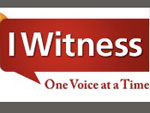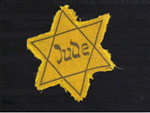In order to start using IWitness, click here and select “register.” Once registered, you will be able to create classes and generate access codes students can use to register.
Teachers are using IWitness as a way to integrate 21st-century literacies into a range of subjects.
Even prior to registering, the IWitness home page features a rotating group of curated clips. These short clips run less than five minutes and draw learners into compelling stories. Linked from the home page, the Browse All Topics page provides more clips from a breadth of topics to anyone visiting the site. Registered users are able to search among more than 1,000 full-length testimonies, then save clips from the testimonies for use in projects. Testimonies have been indexed to the minute with keywords. If, for example, students search for “music,” they will get a list of clips where the interviewee discusses music, and they can go right to the exact minute in which music is discussed in a testimony. Users also can narrow search results in various ways.
Once signed in, you should go to your “Dashboard” to get started exploring IWitness. From here you will notice videos located on the left side under “Connections.” The Connections videos will help you address important topics with your students: ethical editing of video clips, effective searching, and defining terms like “archive” and “testimony.” There is an Educators page designed to orient teachers to the site and highlight available resources. There is also a resource tab on the top of the screen with links to reliable information. For students and teachers alike, IWitness offers a Tool Kit, which can fly out from the right side of the screen. The Tool Kit provides users with quick access to their assigned activities, as well as to an encyclopedia, glossary, and note-taking tool.
IWitness has numerous activities you can assign to your students. More than 200 activities are available in several languages and cover an array of subjects from the Holocaust and genocide to cinema and media & digital literacy. Different types of activities present information in diverse formats and can be filtered for different age or subject levels. “Information Quest”, for example, focuses on a single survivor or witness of the Holocaust. Students listen carefully for information in testimony clips and then reflect on their learning by using, among other things, a world cloud tool. As an educator, you are also able to build your own activities for your students in IWitness with the “Activity Builder”. The additional resources offered on the “Resources” page provide bibliographies, glossaries, and timelines that may be useful when assigning activities for students to build or complete.


